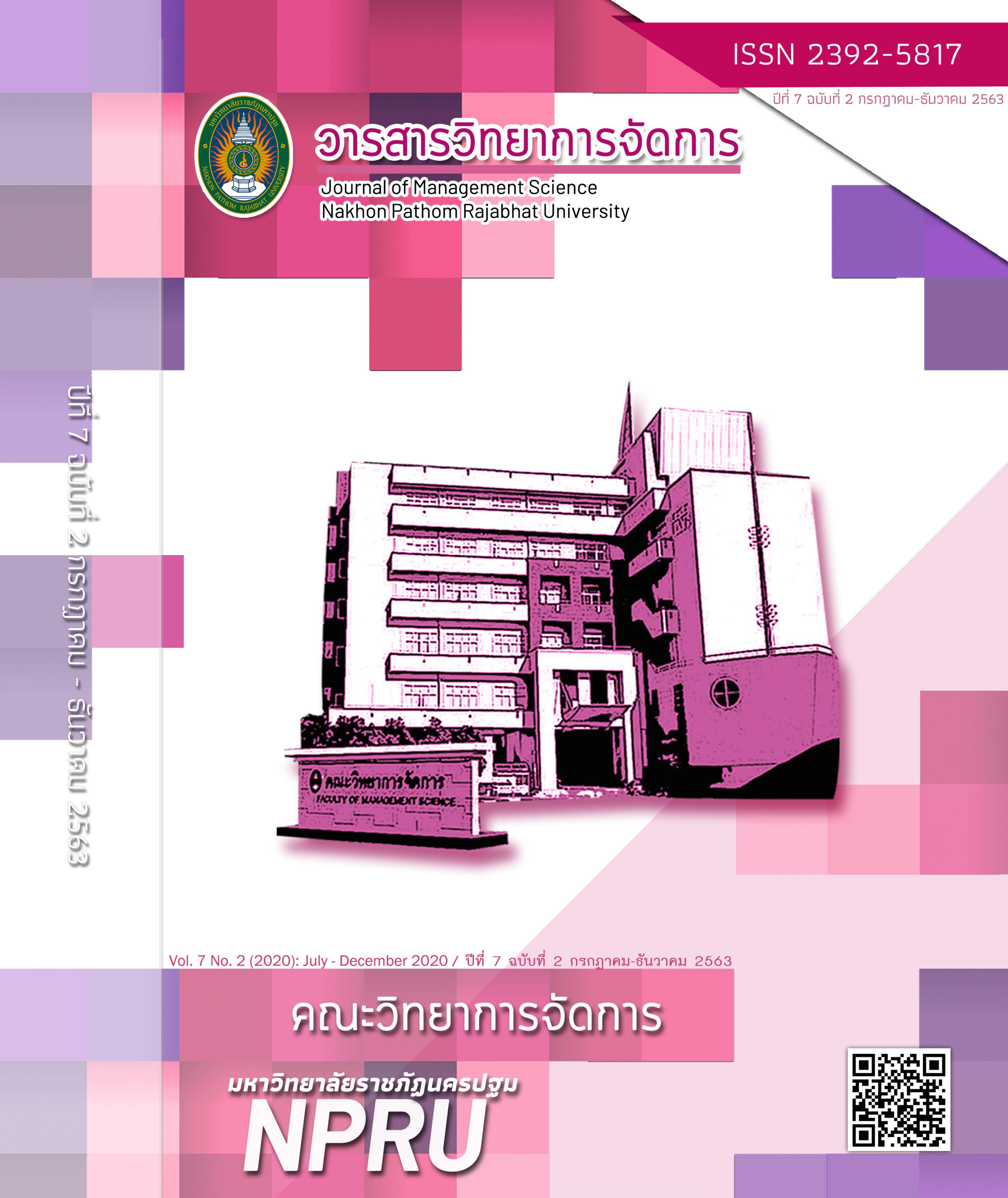Guidelines for developing a learning organization of the Office of The Permanent Secretary, Ministry of Education
Main Article Content
Abstract
This research aimed to: 1) compare the level of learning organization of Office of Permanent Secretary, Ministry of Education as classified by personal factors; 2) study factors affecting the learning organization of Office of Permanent Secretary, Ministry of Education in the aspects of proper structure, educational technology, teamwork and network system, and knowledge construction and transfer; and 3) identify the guidelines for development of learning organization of Office of Permanent Secretary, Ministry of Education.
The research sample was 1) 245 personnel of the Office of Permanent Secretary, Ministry of Education, derived by stratified random sampling. The instrument used for data collection was a questionnaire constructed by the researcher. Data were analyzed with percentage, mean, standard deviation, t-test, one-way analysis of Variance, least significant difference, correlation coefficient, multiple regression, and content analysis. 2) The 10 key informants consisted of supervisors, group leaders, and division directors of Office of
Permanent Secretary, Ministry of Education, who voluntarily joined the research. They were selected by purposive sampling.
The research results revealed that:
1. The level of learning organization of Office of Permanent Secretary, Ministry of Education as perceived by personnel with different genders, ages, status, positions, work experiences and chain of command was not different. However, the difference was found among personnel with overall education level with significant difference at .05 levels.
2. Regarding the factors affecting the learning organization, the aspects of knowledge construction and transfer (b=0.36), proper structure (b=0.19), and teamwork and network system (b=0.17) significantly affected the learning organization with predictive power of 81 percent. The equation was as follows:
Y = 1.01 + 0.19**(X1) + 0.04(X2) + 0.17**(X3) + 0.36**(X4).
3. The guidelines for development of learning organization of Office of Permanent Secretary, Ministry of Education, were the administrators should: give importance, support, and motive the personnel to realize learning organization being; develop new concepts, plan for organization development, and monitor the implementation continuously; apply technology to develop learning organization being based on personnel suitability, transfer knowledge via network, build information technology system to certify the development, and add more learning channels for new innovations; develop personnel and adjust personnel’s behaviors, create vision for personnel development, encourage personnel to be more enthusiastic to self-development of and life-long learning, and promote cooperative learning and knowledge and experience transfer. These will lead to mutual working paradigm and systematic knowledge collection and management.
Article history: Received 10 September 2019
Revised 1 October 2019
Accepted 4 October 2019
SIMILARITY INDEX = 0.00 %
Article Details
The views and opinions of the article appearing in this journal are those of the author. It is not considered a view and responsibility of the editorial staff.
References
บุษยมาศ สิทธิพันธ์. (2559). ความเป็นองค์การแห่งการเรียนรู้ของโรงเรียนมัธยมศึกษาในอำเภอท่าใหม่ จังหวัดจันทบุรี สังกัดสำนักงานเขตพื้นที่การศึกษามัธยมศึกษา เขต 17. วิทยานิพนธ์ศึกษาศาสตรมหาบัณฑิต สาขาวิชาการบริหารการศึกษา บัณฑิตวิทยาลัย มหาวิทยาลัยบูรพา.
ปราณี ตันประยูร. (2560). ความเป็นองค์การแห่งการเรียนรู้ของมหาวิทยาลัยราชภัฏพระนครศรีอยุธยา. วารสารวิชาการมหาวิทยาลัยราชภัฏวไลยอลงกรณ์, 7 (2), 35-44.
รวมพร ทองรัศมี จารุวรรณ สกุลคู อรรณพ โพธิสุข และจตุพล ยงศร.(2557). รูปแบบการบริหารจัดการเพื่อการเป็นองค์การแห่งการเรียนรู้ของมหาวิทยาลัยเซาธ์อีสท์บางกอก. วารสารวิชาการมหาวิทยาลัยศรีนครินทรวิโรฒ, 7 (1), 89-106.
รัชพล ศรีธรรม. (2559). ปัจจัยที่ส่งผลต่อศักยภาพการเป็นองค์การแห่งการเรียนรู้ของสถานศึกษาในเขตเศรษฐกิจชายแดนจังหวัดเชียงราย. วารสารวิชาการมหาวิทยาลัยราชภัฎเชียงราย, 9 (3), 169-179.
วสันต์ สุทธาวาศ และประสพชัย พสุนนท์. (2558). ปัจจัยที่ส่งผลต่อพฤติกรรมสร้างนวัตกรรมระดับบุคคลในสำนักงานคณะกรรมการการศึกษาขั้นพื้นฐาน. วารสารวิชาการมหาวิทยาลัยศิลปากร สาขามนุษยศาสตร์ สังคมศาสตร์ และศิลปะ, 8 (1), 530-545.
สำนักงานปลัดกระทรวงศึกษาธิการ กลุ่มบริหารงานบุคคล.(2561). ตารางสรุปผลการวิเคราะห์กำลังคน. [ออนไลน์] ค้นเมื่อ 2 มกราคม 2561 จาก http://www.bga.moe.go.th/2018/wp-content/uploads/2018/03/ตารางสรุปผลการวิเคราะห์กำลังคน.
Best , J W., and James V. K. (1986). Research in Education. (5th ed.). New Jersey : Prentice Hall Inc.
Marquardt, M. and Reynolds, A. (1994). The global learning organization. New York: IRWIN.
Senge, P. (1990). The fifth discipline. The art & practice of the learning organization. London, UK: Random House.


